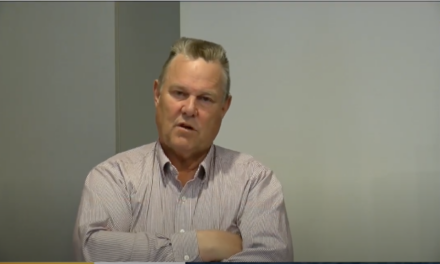We support our Publishers and Content Creators. You can view this story on their website by CLICKING HERE.
An Ohio law prohibiting the use and acceptance of foreign money in state ballot initiative campaigns can take effect for the 2024 election, a federal appellate court ruled Tuesday.
Writing on behalf of the 6th Circuit Court of Appeals, Judge Amul Thapar granted an emergency request by Ohio Secretary of State Frank LaRose and Attorney General David Yost to place a stay on an August district court injunction that prevented the law from being enacted. The district judge overseeing the case argued the statute’s definition of “foreign nationals” is “likely unconstitutional,” adding these individuals “have political speech rights” covered by the First Amendment.
The appellate court issued a temporary stay on that injunction last month while it considered the merits of the case.
“Because our initial review suggests that the district court’s First Amendment analysis was flawed, we now grant Ohio’s motion for a stay of the district court’s order,” Thapar wrote.
Thapar was joined in his majority opinion by Judge David McKeague. The dissent was authored by Judge Stephanie Davis.
Approved by lawmakers earlier this year, HB 1 stipulates that foreign nationals are prohibited from making “a contribution, expenditure, or independent expenditure in support of or opposition to a statewide ballot issue or question, regardless of whether the ballot issue or question has yet been certified to appear on the ballot.” The bill further barred foreign money from being given to political parties, candidates, or campaigns — all of which are prohibited from “knowingly” accepting such funds.
The law was passed with the purpose of warding off interference by foreign actors such as Hansjörg Wyss, a Swiss national whose Berger Action Fund has gifted hundreds of millions of dollars to left-wing dark money groups such as the Sixteen Thirty Fund, as noted in an Americans for Public Trust April report. Last year, the latter organization dumped more than $11 million into the pockets of left-wing groups backing a pro-abortion ballot initiative and aiming to defeat a ballot measure that sought to raise the threshold to amend the Ohio Constitution, according to a local ABC affiliate.
In upholding the law, Thapar noted how “[w]orries about foreign influence in American elections have escalated in recent years.” He further argued that “Ohio’s rationale of preventing foreign interference in state elections has a strong pedigree in American political history, and that fact reduces its evidentiary burden under the strict scrutiny analysis.”
“Given this tradition of government regulation, Ohio has met its evidentiary burden for purposes of strict scrutiny,” Thapar wrote.
Honest Elections Project Action Executive Director Jason Snead responded positively to Tuesday’s ruling, saying in a statement the court made the “correct decision.”
“Foreign nationals are already banned from contributing to individual campaigns and candidates. Why should ballot issue campaigns be any different?” Snead said. “While the legal battle is unfortunately not likely over, Honest Elections Project Action maintains that states are clearly within their rights to ban foreign nationals like Hansjorg Wyss from contributing to state ballot issue campaigns.”
For more election news and updates, visit electionbriefing.com.
Shawn Fleetwood is a staff writer for The Federalist and a graduate of the University of Mary Washington. He previously served as a state content writer for Convention of States Action and his work has been featured in numerous outlets, including RealClearPolitics, RealClearHealth, and Conservative Review. Follow him on Twitter @ShawnFleetwood

 Conservative
Conservative  Search
Search Trending
Trending Current News
Current News 





